Dafydd Wood - Prism Series Book #2: Mitch Dobrowner


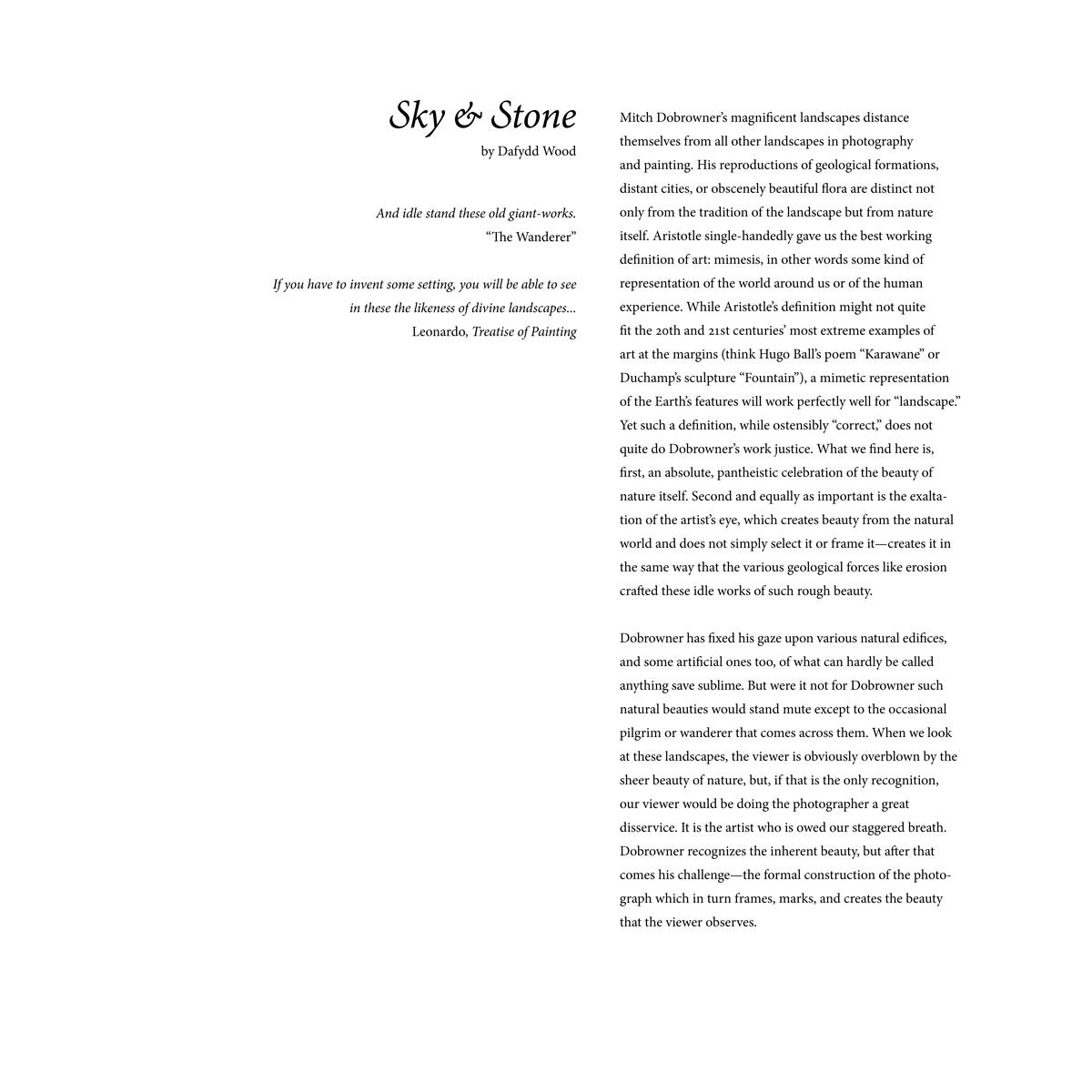
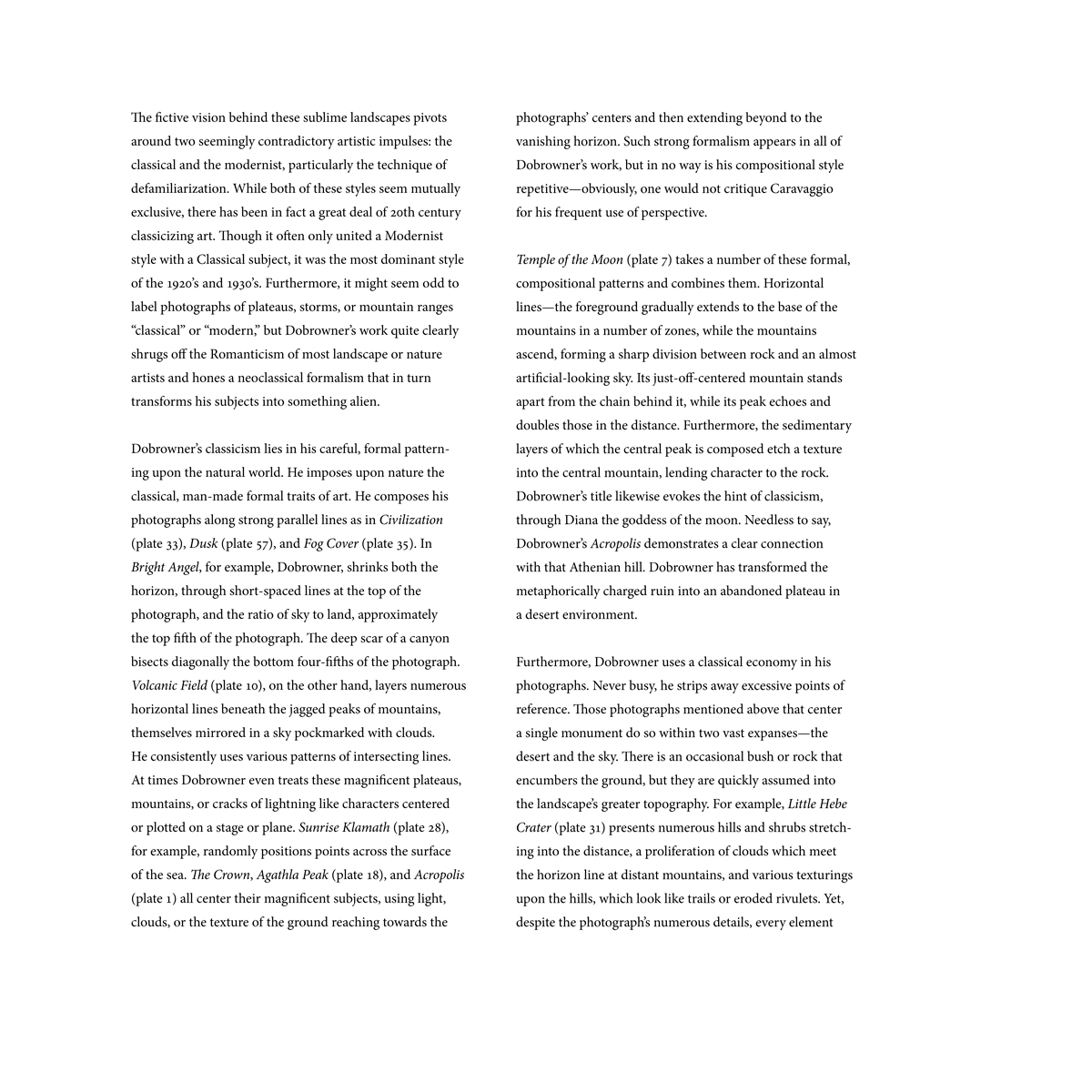
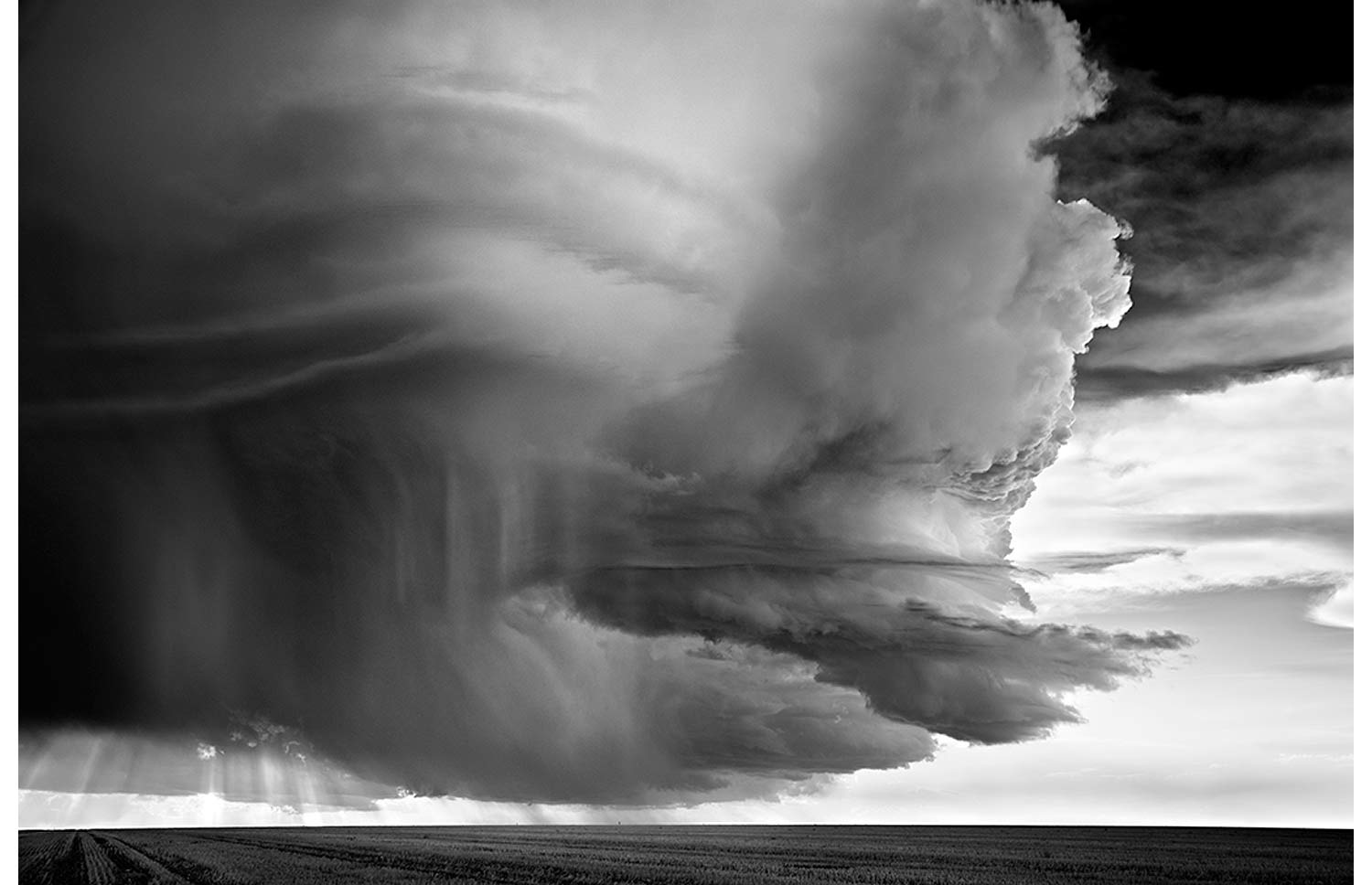

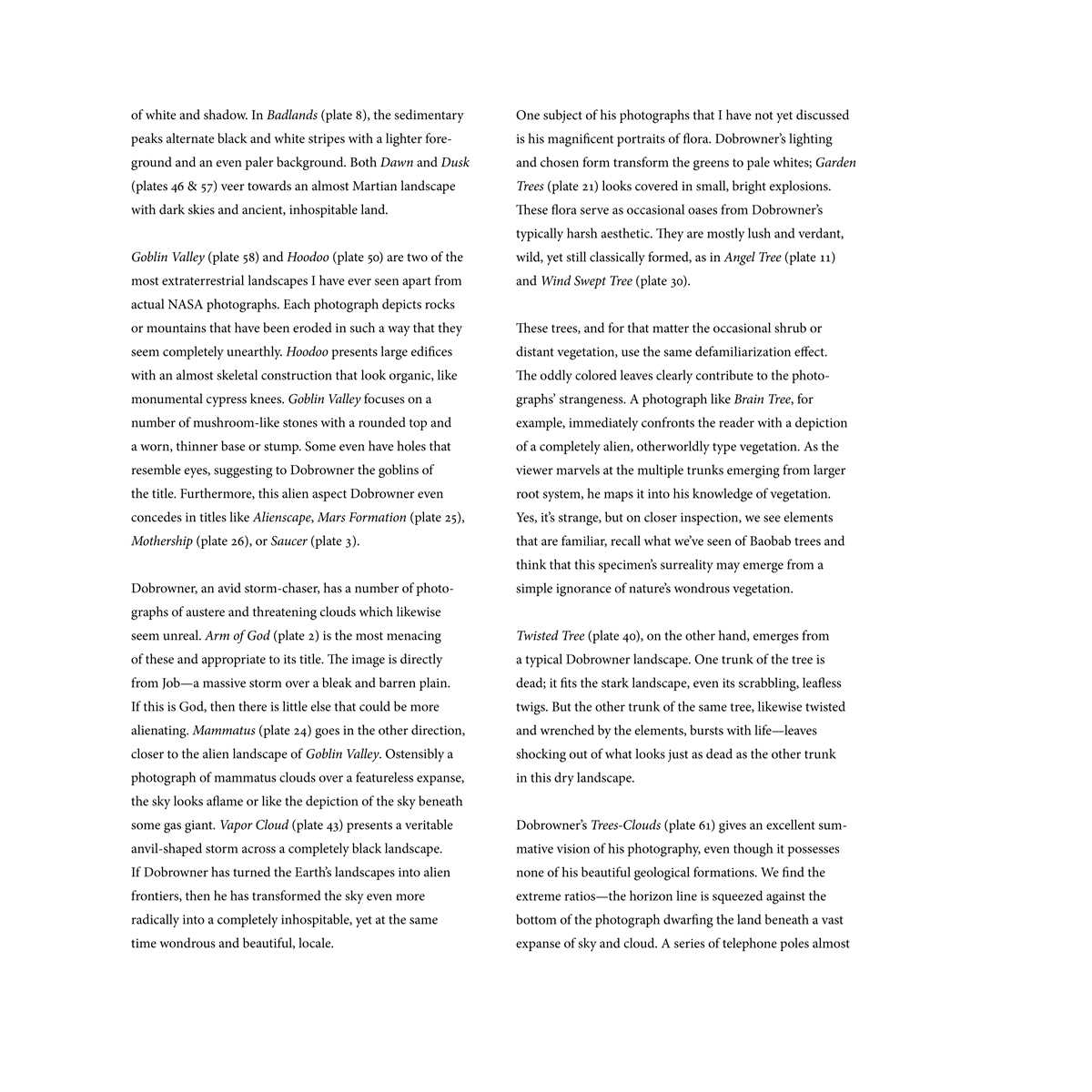
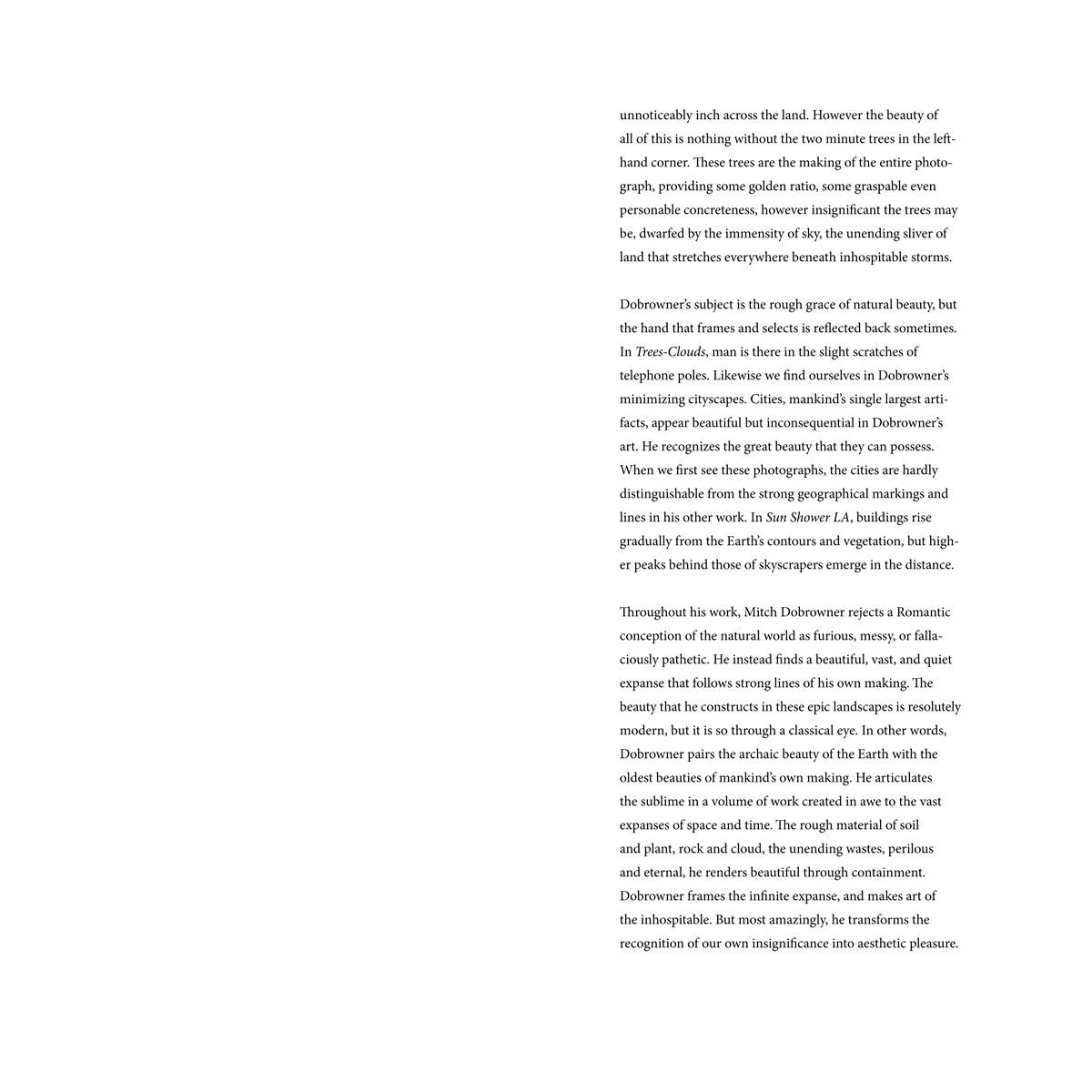
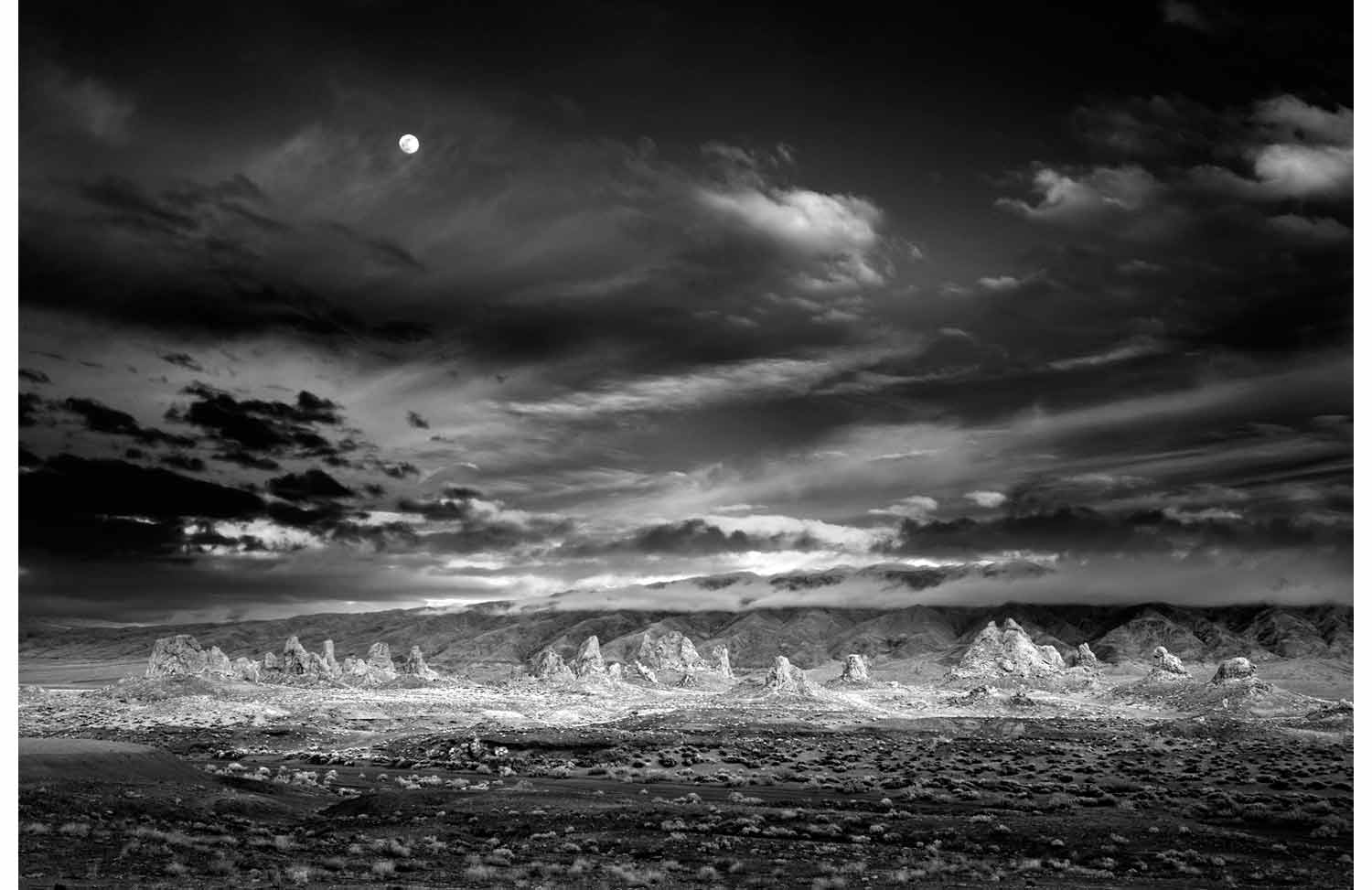
Prism Series Book #2: Mitch Dobrowner
Introduction by Dafydd Wood
Photographs by Mitch Dobrowner
Edition: 280 copies
Includes one of two loose silver-gelatin contact prints,
each in an edition of 70 copies
64 duo-tone plates
Soft-bound with handmade Twinrocker paper
12 1/2 x 12 1/2 inches
Handcrafted in New England
Click here to order online.
Mitch Dobrowner’s magnificent landscapes distance themselves from all other landscapes in photography and painting. His reproductions of geological formations, distant cities, or obscenely beautiful flora are distinct not only from the tradition of the landscape but from nature itself. Aristotle single-handedly gave us the best working definition of art: mimesis, in other words some kind of representation of the world around us or of the human experience....
Dobrowner has fixed his gaze upon various natural edifices, and some artificial ones too, of what can hardly be called anything save sublime. But were it not for Dobrowner such natural beauties would stand mute except to the occasional pilgrim or wanderer that comes across them. When we look at these landscapes, the viewer is obviously overblown by the sheer beauty of nature, but, if that is the only recognition, our viewer would be doing the photographer a great disservice. It is the artist who is owed our staggered breath....
from the introduction by Dafydd Wood
Memories - translated and with an introduction by Dafydd Wood
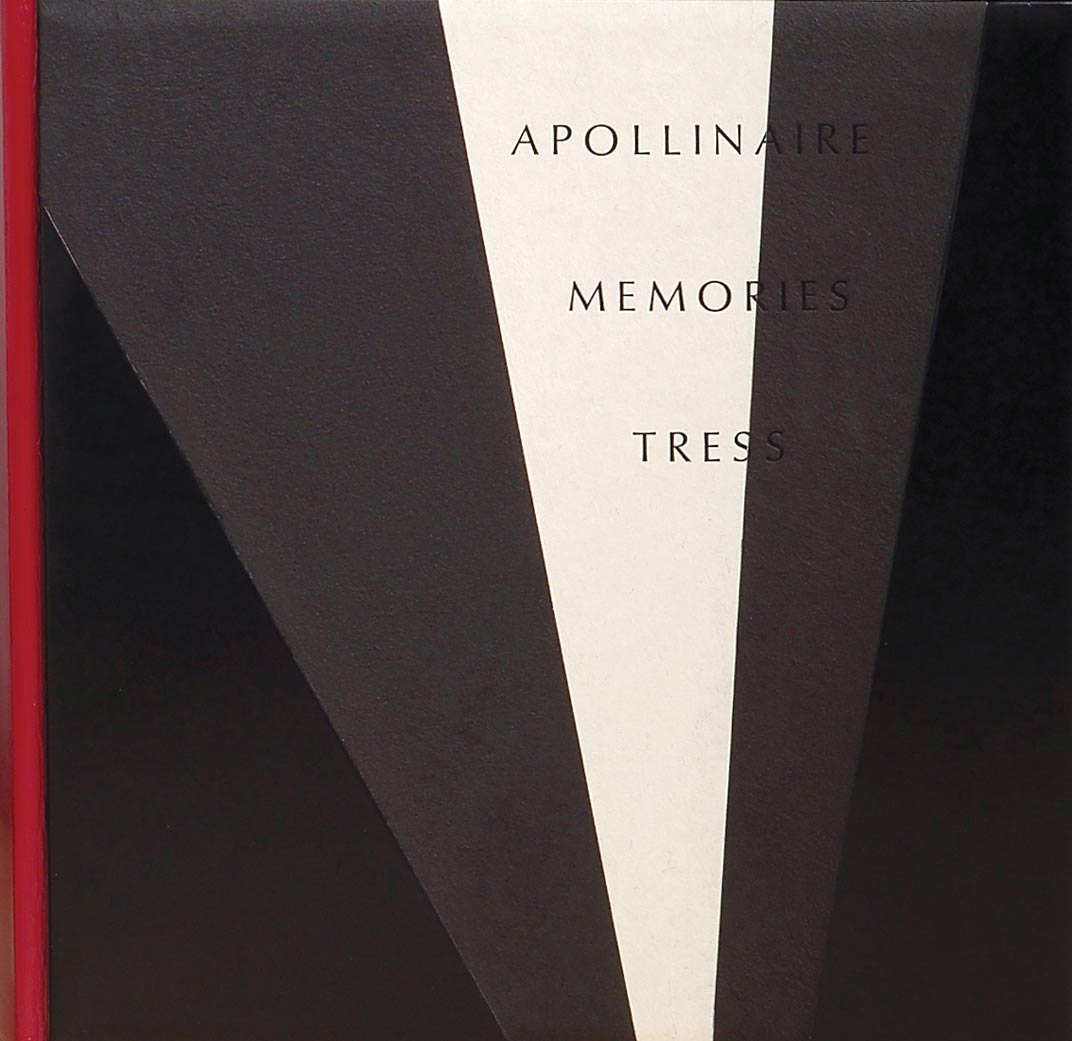
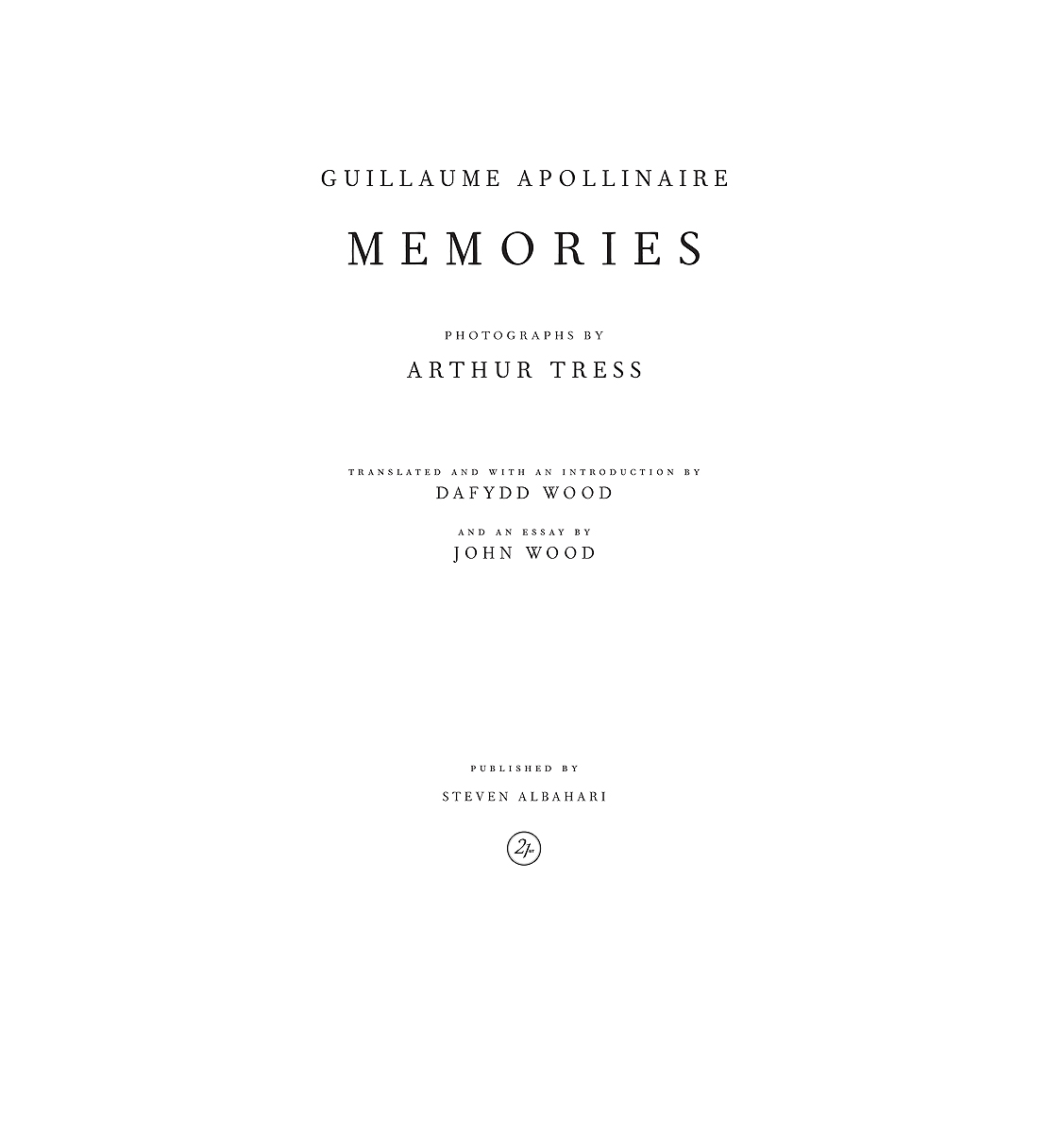
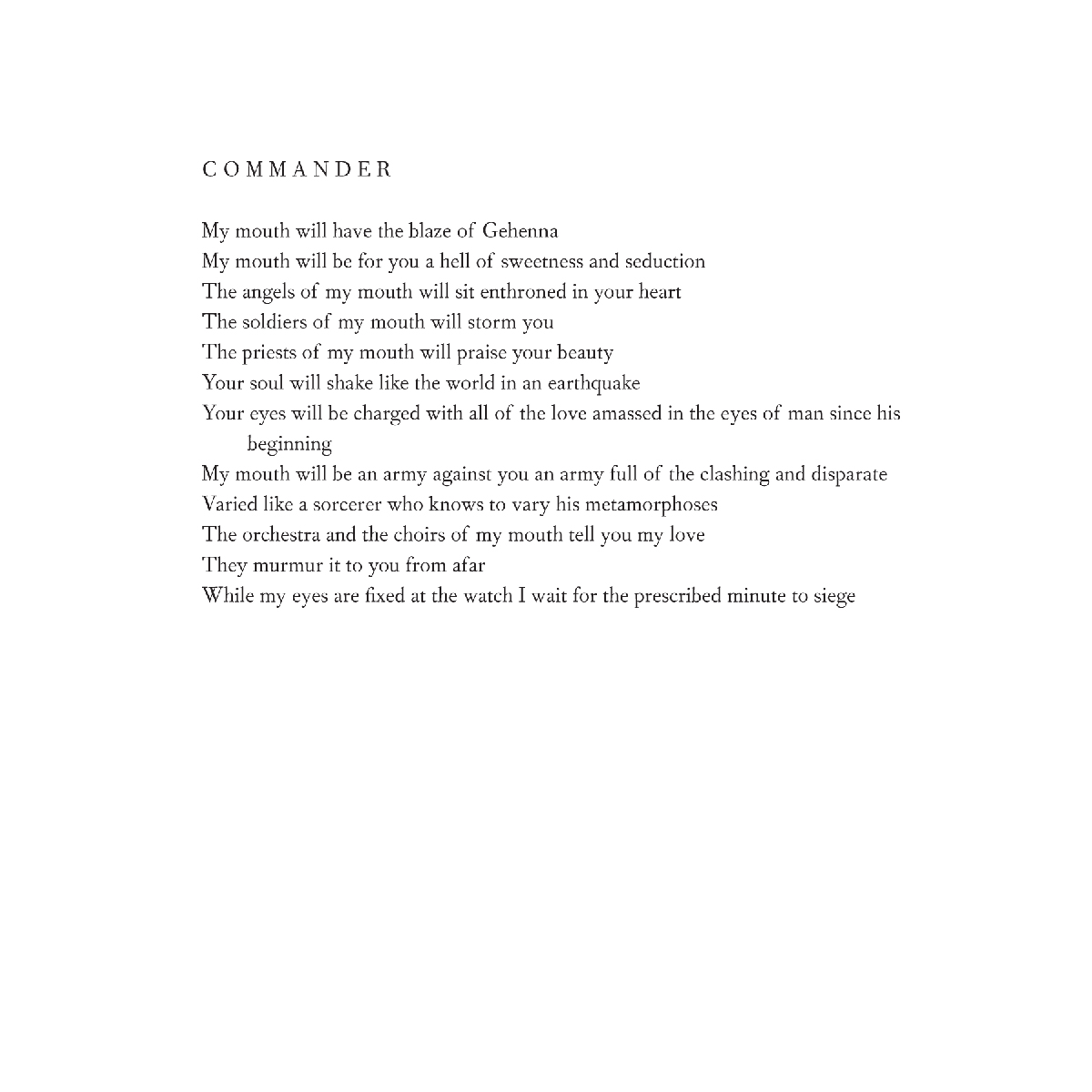

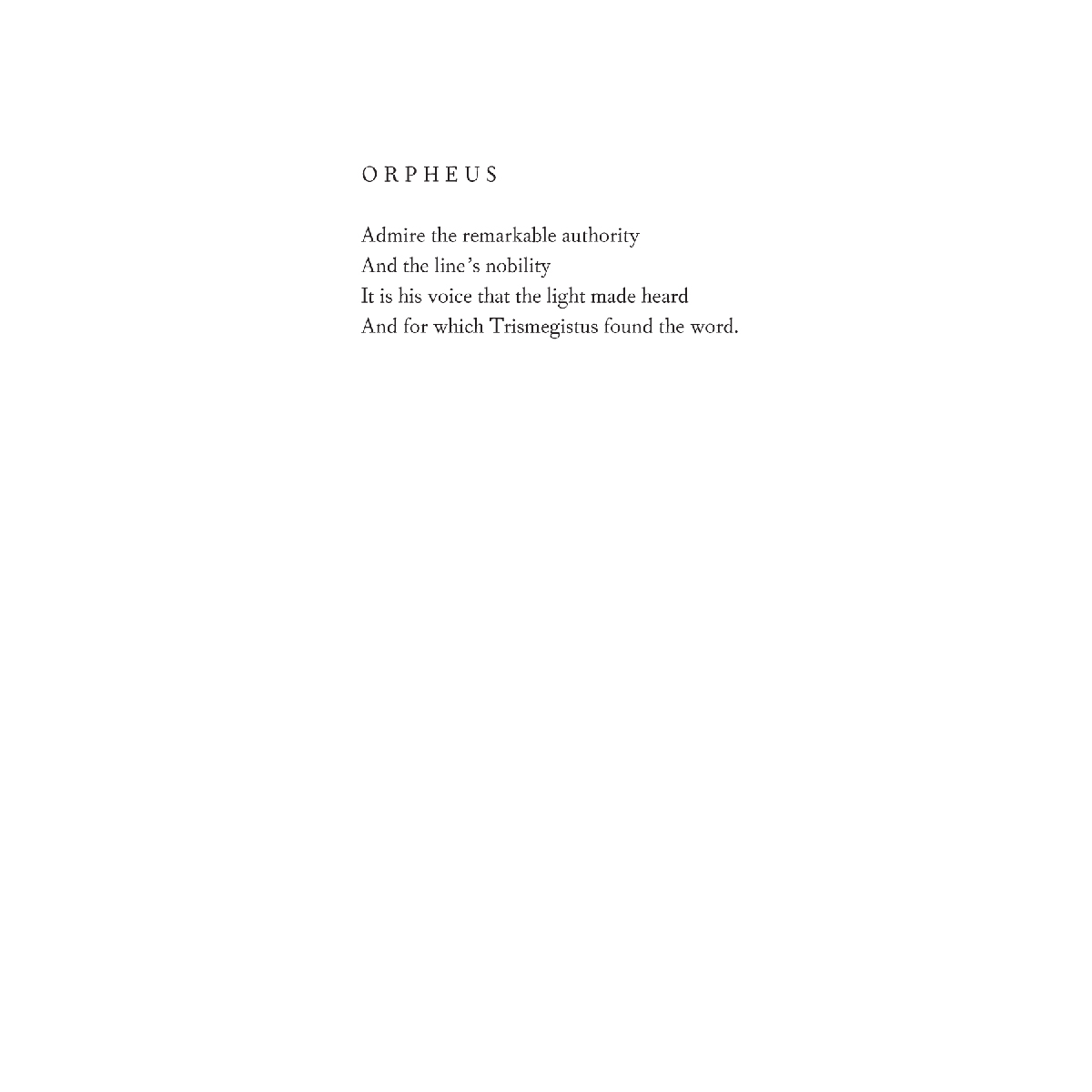

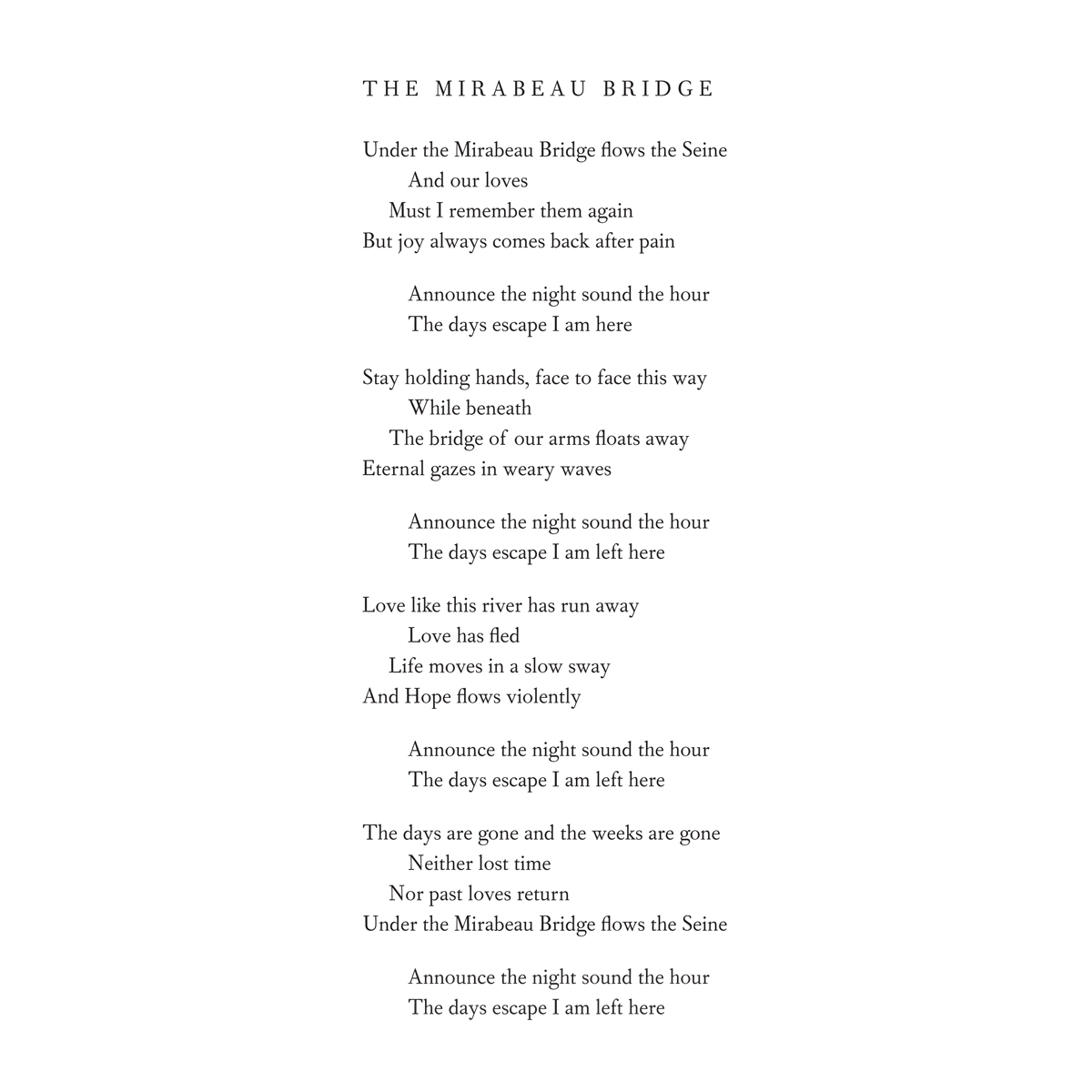
Memories
Photographs by Arthur Tress
Poems by Guillaume Apollinaire
Translated and with an introduction by Dafydd Wood
Essay by John Wood
Edition: 40 numbered copies
10 bound, plus 1 loose platinum prints
16 x 16 inches
Handcrafted in New England
Apollinaire appeared at a time when modern art was being born. He is modern with some of his surreal imagery (however, can anything be more surreal than Ovid’s Metamorphoses?) and pattern poems (but George Herbert was doing those in the seventeenth century). As one reads Alcools and Calligrames, Apollinaire ’s two major volumes of poetry, one notices a web of interrelated poems which builds up to a magnificent statement of love.
Apollinaire’s greatest achievements are his deceptively simple love poems, several of which I have translated here. Running throughout this cycle is an elegiac sense of loss. Love is only temporary, and it flees quickly. He waits, hoping, but knowing that she will not return. There is also an element of praise in these poems. He praises the body of the woman he loves in a sensual, devoted way. He represents not a break with tradition, but rather a link tying the classical world to the modern in the same ways that Arthur Tress does.
Apollinaire shows us the vibrant in art, and he consistently captures us with his linguistically exotic and sensual world. His poetry, not unlike the photographs of Arthur Tress, moves in cascades of beauty shimmering with praise and love.
from the Introduction by Dafydd Wood

